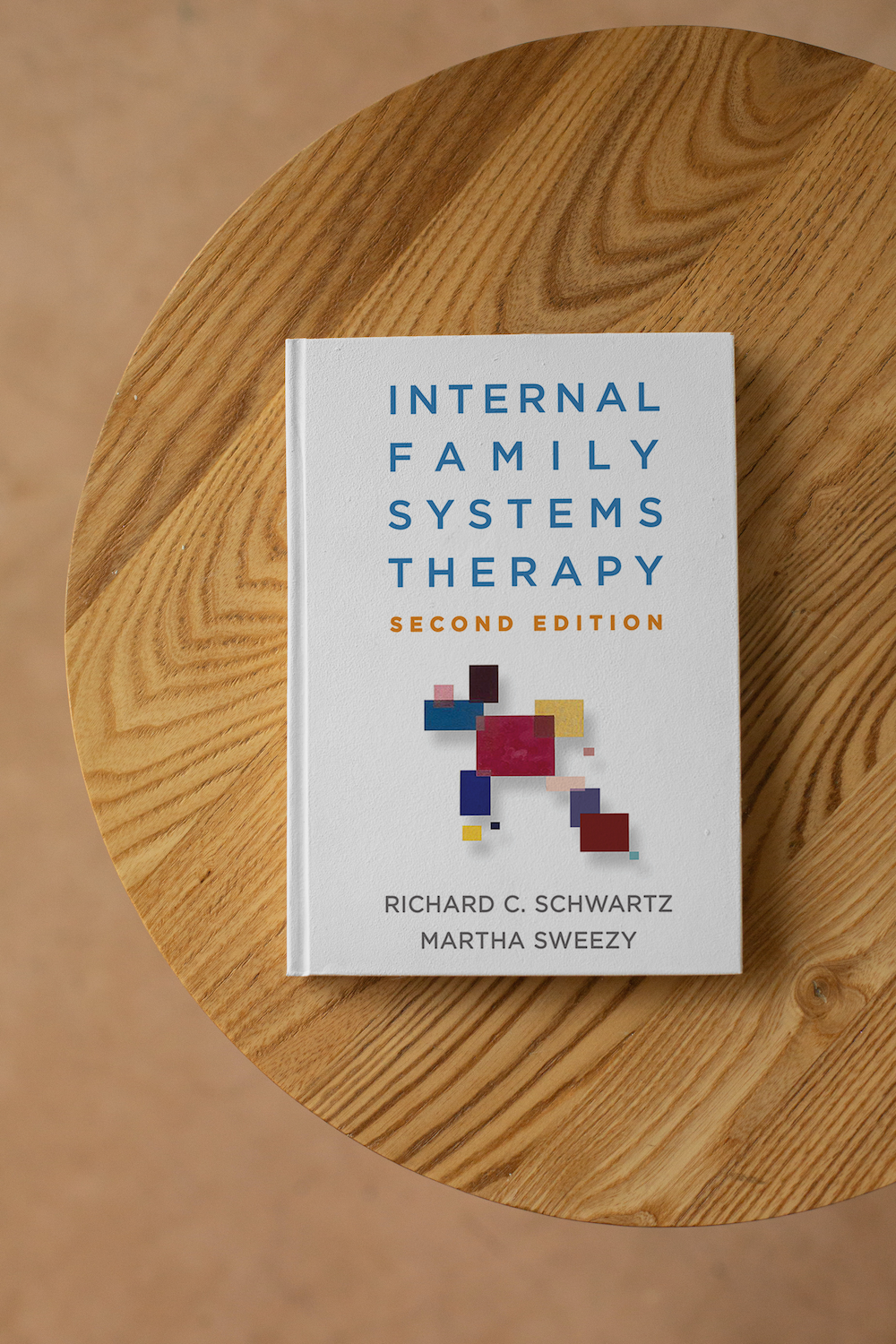Internal Family Systems Therapy
You’re looking to get to the root of your issues…
Internal Family Systems is a powerfully transformative, evidence-based model of psychotherapy for understanding and harmonizing the mind. This therapy style can help you do the deep work needed to heal.

Sometimes you wonder why you behave in certain ways.
You don’t want to do these things, but it feels like you have no control over them. You wish you could respond to situations instead of immediately reacting. You wish so badly that you could get rid of your undesirable traits. Maybe you’re embarrassed about the tears that fall down your cheeks when you try to express your feelings. Perhaps you hate that you’re anxious in social situations. Maybe you’re frustrated that you’re constantly beating yourself up in your head.
It sometimes feels like different parts of you are competing in a game of tug-of-war. For every reason you’d like to do something, there is an equally important reason discouraging you from doing that same thing. Your mind feels like a jumbled mess, and making decisions can be challenging.
Perhaps you’ve tried other therapies, but they weren’t what you hoped for. Coping skills can be helpful but you don’t feel they resolve anything. You’re looking to do deeper work so you can get to the root of your issues.
Feeling like you have a million different parts of you that want a million different things can be so overwhelming. Sorting through everything in your mind feels impossible.
We invite you to think about this: what would it be like for you to experience anxiety without feeling disturbed or scared? Would you still feel the need to get rid of the anxiety if it wasn’t creating any discomfort? What would it be like to love and welcome all parts of you?
What is Internal Family Systems?
Internal Family Systems (IFS) is a powerfully transformative, evidence-based model of psychotherapy for understanding and harmonizing the mind. Although the name can be deceiving, “family systems” refers to the complexity of the mind and can be used with individuals, couples, and families. IFS therapists believe the mind is naturally multiple, and that it’s a good thing. We all have different aspects or “parts” of us—internal people of different ages, talents, and temperaments. The assumption is that there are no bad parts, only parts forced into bad roles and all parts have positive intentions. Many people relate to this concept and already use the language of IFS in everyday life, for example, “A part of me is ready to find a new job, but another part of me is scared to leave.”
At the core of every individual is indestructible energy, which we refer to as the Self. The Self is who you truly are when no parts are present and contains leadership qualities such as confidence, calmness, curiosity, compassion, connectedness, creativity, and courage. The Self knows exactly how to heal, allowing you to become integrated and whole.

The Self and the different parts of you make up your internal system.
IFS teaches us that our parts take on distinct roles in order to protect us, navigate life, and survive.
It’s only natural that parts of you were wounded by experiences throughout your life. These wounded parts made meaning out of these experiences and have adopted extreme beliefs, for example, “I’m unlovable.” Other parts of you attempt to shield you from the pain of this wounded part by exiling it from your life, but this only amplifies the very feelings this protector is trying to avoid—shame, abandonment, and fear.
We refer to the different types of parts as managers, protectors, and exiles:
Mangers are proactive protectors of your system. They attempt to keep you in control of every situation and relationship to protect you from feeling hurt or rejected. This might look like a part of you that is a planner or a pessimist.
Exiles hold painful emotions that have been isolated for the protection of the system or the part’s safety. These parts become increasingly extreme in an effort to be cared for, heard, and understood. The parts take on extreme beliefs from the experiences that left them wounded, for example, “I’m unlovable.” This might feel like shame, fear, or pain.
Firefighters are reactive protectors of your system. They act after exiles are upset to either soothe or distract them. This could be a behavior like mindlessly scrolling on your phone, obsessing, or binge eating.
To better illustrate this idea, consider this analogy from the book The Internal Family Systems Model by IFS Founder Richard C. Schwartz.
“Let’s think of your anger as one of your children. Suppose you had a son whom you couldn’t control and he threw tantrums every night. That would be bad enough, but suppose that because those tantrums drove you crazy, you constantly criticized him and tried to keep him locked in his room for fear that he’d embarrass you in public. You stayed home on weekends to make sure he didn’t run away and felt like a terrible parent because of his behavior. Suppose also that all of your reactions just made the tantrums worse because he sensed that you’d like to be rid of him. Because of the way you relate to your son, the problem comes to consume your life. The same is true with our extreme emotions and irrational beliefs—they’re difficult enough, but the way we try to handle them often exacerbates them and makes our lives miserable” (Schwartz 4).

Like the sun, the Self can be temporarily obstructed, but it never disappears.
Parts obstruct the self, oftentimes because they do not know the Self or trust it enough to protect the system. Much of the work in IFS is focused on addressing the concerns of the Managers and Firefighters so that they feel comfortable enough to step back so the Self can help heal the exiles.
IFS helps people heal by accessing and loving their protective and wounded inner parts by changing the dynamics that create discord among parts and the Self, allowing its leadership qualities to shine through. As a bonus, people are more accepting of, and less reactive to, others who used to bother them; you can relate to them with compassion because you’re able to do that with parts of you that resemble them.
IFS Can Help You Do The Deep Work Needed to Heal
IFS can be useful for treatment in the following conditions:
Anxiety disorders
Eating disorders
Depressive disorders
Obsessive-compulsive disorders
Self-harm/suicidal ideation
Substance use disorders
Trauma disorders
Anger
Chronic pain and illness
Relationship issues/interpersonal issues
Self-esteem
Shame
Stress management
What Does IFS Therapy Look Like?
You may come to therapy with a list of things you’d like to talk about, or maybe you don’t know where to start. Either way, your therapist will ask you if it feels okay to focus inside.
Most people are initially reluctant to do this because it’s unfamiliar or because they may fear what they’ll find in there. Your therapist will respect your reluctance and will help you explore it, as well as any other “parts” of you that show up in the process.
You are in control of what happens in therapy.
If you agree to go inside, your therapist will ask you what part you want to explore first; some may feel safer to explore than others. You may experience thoughts that warn you not to focus inside; such thoughts come from protective parts and are common and natural. It may be necessary to listen to these fears to gain a better understanding of the parts of you that are scared.
IFS therapy sometimes feels as if you are talking to yourself. You will focus on a thought or feeling, ask a question of it, and patiently wait for an answer. This might sound strange, but our experience indicates that after the initial discomfort, clients are amazed at their ability to have meaningful inner dialogues.
Your IFS therapist first helps you to get to know and appreciate the parts that protect you. As each part begins to change, you will begin to experience a little more Self–the core of a person that contains leadership qualities such as compassion, perspective, curiosity, and confidence.
Your Self knows how to heal and will help your parts “unburden” and unload the extreme beliefs and emotions that they took on at some point in your life. The dynamics that create discord among parts and the Self shift drastically and you are left feeling calm, peaceful, clear, and deep gratitude for the many parts of you.
Questions or concerns about Internal Family Systems Therapy?
-
IFS therapy does not make any effort to change clients’ thoughts or feelings, but instead, focuses on understanding where that thought is coming from to heal the wounded part that is having these distressing thoughts. In healing those parts, thoughts change naturally.
IFS is a paradigm shift compared to other therapies that are focused on changing your thoughts and behaviors and getting rid of your distressing symptoms using coping skills and other therapeutic techniques.
-
That’s okay! We’d invite you to be curious about the part of you that is uncomfortable. What might it hope for you as you try something unfamiliar?
If you experience anything other than qualities of the Self (confidence, calmness, clarity, curiosity, compassion, connectedness, creativity, and courage), a part of you is present for good reason. We will get to know this part more and address any concerns it may have about the process.
IFS is client-led, meaning you set the pace for our work together. This phrase describes our stance on the pacing of internal work: “Slow is smooth and smooth is fast.”
If you find that the IFS model does not resonate with you and you’re not interested in it, we’d be happy to provide a referral for you.
-
With all forms of therapy, there is a period of becoming acclimated to the model and developing trust with your system and your therapist. Everyone’s system is different; some clients need longer to develop trust, thus impacting what one might perceive as “progress.”
It’s important for us to explore any parts of you that might have expectations for therapy so that we can frequently check in with these parts throughout our process.
In general, by building positive, loving relationships with your parts, you’ll feel a sense of clarity and compassion for the work they’ve been doing. Changes in the internal system will affect changes in the external system and vice versa. Our clients often describe an indescribable “aha” moment early on in our work together.

Reach out to us today!
The best way to schedule your complimentary 15-minute phone consultation is to fill out the contact form below. This will allow us to send you a few different available dates so that you can check your schedule and choose a time that’s best for you.
During your consultation, we will get to know more about what you’re looking for and better understand if we can help you. We can also answer any questions you might have or you can visit our FAQ page. If you and your therapist agree you are a good fit for one another, we will offer to schedule your intake.










